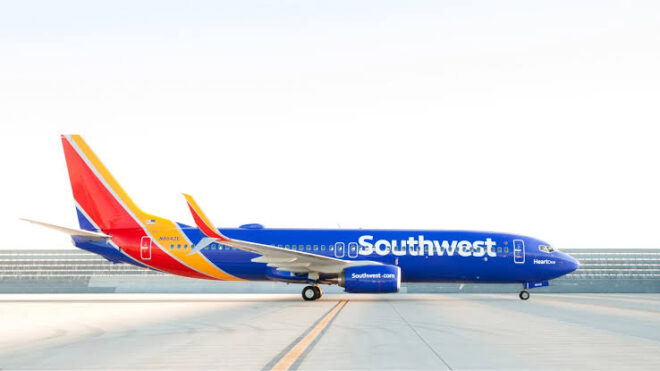
I’ve been critical of Southwest Airlines recently, as it’s dropped some of the key options that made passengers feel it was special. But, after considering some additional changes that became apparent this week, I have to admit they make sense.
You might know that Southwest has announced things like getting rid of its much-touted Bags Fly Free perk for most passengers, the end of open seating, and the first mass layoffs in the company’s history.
Each of these seemed self-defeating, especially if Southwest hoped to maintain its ethos of putting the employees first, and good customer experiences will follow, which, the theory went, ultimately led to investor profits.
Strategic moves
But the changes were the result of a deal Southwest made with an activist investor called Elliott Investment Management, which had insisted on cost-cutting, higher profitability, and even a change in executive leadership.
The executives — including Southwest CEO Bob Jordan — are still there, but the priorities have shifted. That’s showing up again in additional Southwest changes that were revealed this week. They include things like:
Apparently getting rid of “Wanna Get Away” fares, which are replaced on the Southwest hierarchy with a new “Basic” category of fare. It’s an odd change of name, given that materials Southwest shared suggest they’ll still have a “Wanna Get Away Plus” fare level and, like “Bags Fly Free,” “Wanna Get Away” is a Southwest trademark.
Going to nine boarding groups. For as long as most Southwest passengers can remember, Southwest has had three main boarding groups — A, B, and C. But now that the airline is going to a more traditional assigned-seat model, it apparently will be adopting a more common boarding plan as well.
More layoffs. It’s a smaller number this time, but like a lot of habits people don’t particularly like, once you’ve done it once, it’s easier to do it the next time. About 120 Southwest workers will lose their jobs.
The only thing that would be worse
Plot these changes on a map, and you’ll see a clear trend toward turning Southwest Airlines into a pure commodity, less and less distinguishable from its competition.
In the short term, at least, Wall Street apparently liked the idea, as Southwest’s share price went up.
But even though it’s hard to find many devoted passengers celebrating the evolution, the only thing worse from a business perspective than making this kind of bold switch from an employee- or customer-centered organization to an investor-first one would be making the switch halfway.
Having made that decision, the only reasonable course is to follow through on it to the maximum extent possible.
If you’ve decided to become a commodity player especially, then the only option is to strip down everything and become the most efficient commodity player possible.
Can I interest you in an exit?
What happens now? No one can predict the future, of course, but I imagine its longtime customers will still be rooting for Southwest Airlines. For one thing, the airline has nearly 75,000 U.S. employees.
What’s more, you can also perhaps look to the history of a few other airlines — like Morris Air, which Southwest acquired in 1993 (founded by David Neeleman, who went on to found JetBlue), and AirTran Airways, which Southwest acquired in 2011 (and of which Jordan was CEO for a time).
Could that be the outcome here? Will Southwest look to be acquired or merge with another airline?
I asked Southwest for comment but haven’t heard back.
Meanwhile, industry observers and even the flight attendants union at Southwest have engaged in a lot of speculation. An online poll by the head of the union suggested members thought JetBlue was the most likely target. Industry watchers are left to speculate and maybe find a lesson or two.
For a lot of entrepreneurs, the idea of an acquisition or an exit someday seems like the finish line. If that’s your goal, and you make the decision, double down on it, by making your company as attractive as possible to potential suitors.
Maybe you’ll wind up as forgotten as Morris Air after Southwest acquired it.
But maybe you — and Southwest Airlines — are absolutely fine with that decision.